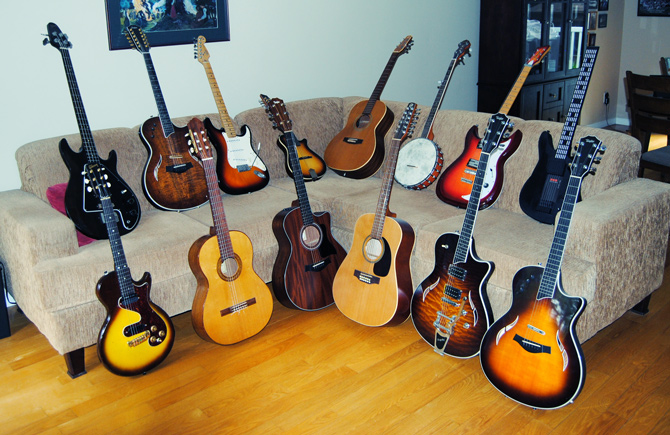“Twa Corbies” is invariably sung in the Scots parlance of the time. The use of an “a” in many words would later be replaced by an “o” : “twa” became “two”, “alane” became “alone” and so on. The word “corbies” obviously comes from the French “corbeaux” (ravens). Here is a modern English translation of the lyrics to “Twa Corbies” :
As I was walking all alone / I heard two ravens making noise
And one unto the other said / Where shall we go and dine today?
Where shall we go and dine today?
In behind that old sod wall / I know there lies a newly slain knight
And nobody knows that he lies there / But his hawk and his hound and his lady fair
His hawk and his hound and his lady fair
His hawk is gone to join the hunt / His hound to fetch a wildfowl home
His lady has taken another mate / So we may make our dinner sweet
So we may make our dinner sweet
You’ll sit on his white neckbone / And I’ll peck out his pretty blue eyes
With many a lock of his golden hair / We’ll line our nest when it grows bare
We’ll line our nest when it grows bare
Many a one for him do mourn / But none will know where he is gone
Over his white bones when they are bare / The wind shall blow for ever more
The wind shall blow for ever more
The knight in Medieval Times was granted a position of honour, especially in a military capacity. Knights were expert horsemen skilled in battle and enjoyed all the latest technological advantages such as armour, maille, lances and crossbows. And yet, the knight was surpassed in the mid-15th century by advancements in the weapons of war, such as the introduction of the culverin as an anti-personnel, gunpowder-fired cannon. Thus, in “Twa Corbies”, two scavenger ravens searching for their next meal come upon a dead knight fallen behind a wall. The knight has been totally abandoned, his hawk gone to join a hunt, his hound fetching a wildfowl home and his lady already taken with another mate. Seeing no opposition, the ravens descend upon the knight’s carcass, pecking out his eyes and pulling out his hair to thicken their nest. The knight’s sun-bleached bones lie forgotten, the wind blowing over them for ever more.
Richard Séguin – voice, MIDI instruments (dulcimer, fiddle, viola, drums), audio samples
To hear the song, click on the title below
Copyright Disclaimer under Section 107 of the Copyright Act 1976 : allowance is made for « fair use » for purposes such as criticism, comment, news reporting, teaching, scholarship, education and research.


